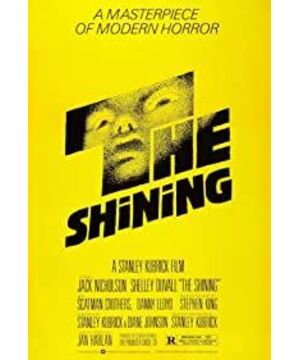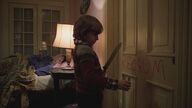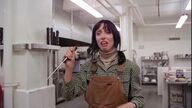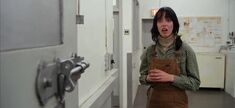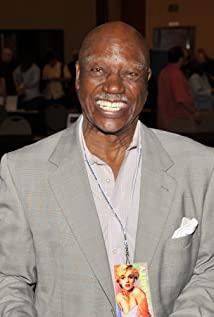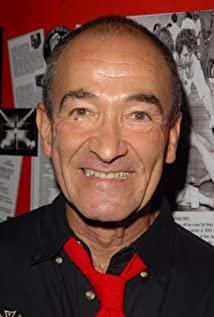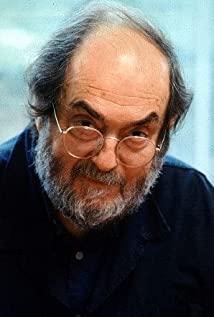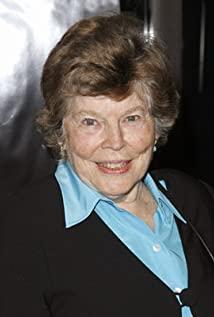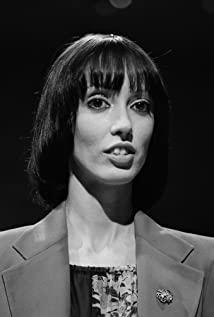Question 1, at the beginning of the film, Danny sees a lot of blood through The Shining, and at the end of the film, Wendy also sees the same picture, and at the same time Wendy also sees a lot of characters that do not exist in reality, why? Wendy and Danny saw the same picture. Speculation: Wendy actually has The Shining, and the character she saw was someone who lived in the Yuanwang Hotel before. The basis is that the hotel manager introduced that the predecessor of the hotel was the tomb of the Indians, and that the Indians came to harass the hotel during the time when the hotel was just built. It's just an understatement, but it's conceivable that bloodshed did occur at the time, and what Wendy saw was most likely what people were doing when the bloodshed occurred (probably a masquerade or something). Being able to see what happened in the past is also a manifestation of Shining's ability.
The second question is who is Delbert Grady: this character is the key to the film in my opinion, Jack meets Grady for the first time in the virtual dance, Grady implies that Jack takes extreme actions to prevent Danny and Wendy from thinking Away from far-sighted thoughts. Grady tells Jack that Danny is connecting with a black chef with a magical power. Viewers all know that Grady does not exist and is imagined by Jack, but why does the person imagined by Jack know that Danny is contacting the black chef, the reason is obvious, that is, Jack also has the ability to Shining. The basis is that Wendy locked Jack in the warehouse, and then the lock of the warehouse was opened. The plot is that Grady helped Jack open the door, but Grady is a virtual character, how can he open the door. My reasoning is as follows, there were only three people in Yuanwang at that time, Jack, Danny and Wendy. Jack was locked up, and only Danny and Wendy could open the door. In this way, there are two possibilities. The first one is that Jack communicates with Danny with Shining and asks Danny to open the lock. The second is also, Jack hints Wendy with the Shining ability, and asks Wendy to open the door. Whether it is the first or the second, it can be determined that Jack has the ability of Shining, Grady is Jack's Shining, just like Tony is Danny's Shining.
Doubt San Danny went to room 237. When he came back, his sweater was torn and his neck was injured, which looked like finger marks. Who hurt Danny: According to the reasoning of question 1 and question 2, the reasoning of question 3 is obtained. When Danny appeared in front of Jack and Wendy in an injured state, Jack was crying to Wendy about the nightmare he had. In the dream, he wanted to kill Wendy and Danny, but he just killed Wendy and hacked her to death, he didn't want to hurt Danny. When Danny shows up, Jack is telling Wendy that he won't hurt Danny no matter what. I believe Jack did love Danny at the time. The first reason is that Danny did not want to leave at that time, and Jack had no reason to hurt Danny. The second reason is that what Jack dreamed of was hacking Wendy to death. The verb "to chop" is used unless a weapon like a knife or axe is used, and Jack does attack Wendy with the axe later on, and kills the black chef with the axe. Looking back, what was left on Danny's neck were finger marks, so there was a contradiction in the narrative before and after, and there was only one way to resolve this contradiction. Danny's injury was not caused by Jack. There are only three people in Yuanwang. Since Danny was not hurt by Jack, excluding Jack, there are only two possibilities, Danny hurt himself, or Wendy hurt Danny. I think the latter is more likely. There are also two reasons. First, Danny's sweater was torn, and the torn part was on the left shoulder, which formed a concept that if Danny hurt himself, he could only tear it with one hand Rotten sweater. Because the left shoulder cannot use the left hand. How can a ten-year-old child tear a sweater with one hand. The second reason is reverse thinking. Wendy told Jack Danny that he was injured when he went to room 237. Jack went to room 237 to check, and came back to tell Wendy that there was no one else, and said: Maybe Danny hurt himself. Of course, the setting of the story is in an isolated place with only three people living in it. Jack said no one else was right (exclude hallucinations). So we can use reverse thinking, and the plot tells us: Danny hurt himself, and Jack saw the apparition in room 237. Our reverse thinking leads to the following result. First Danny's injury wasn't self-inflicted. And secondly it wasn't that someone other than the three hurt Danny. After removing these possibilities, there is only one possibility - Wendy hurt Danny. There are, of course, two arguments in support of this view. The first is that Danny told Wendy that he went to room 237 and was attacked. Instead, it jumps straight to Wendy crying and telling Jack about it, while Danny appears on camera with a horrified expression at the same time. . What is Danny afraid of, Tony's Shining picture? Remembering that Danny saw the Shining picture before, the panic on his face was completely different from this time. This shows that he heard his mother was lying, so he was afraid. The second is that Danny kept saying "murder" with a knife while Wendy was asleep, why did Danny point the knife at his mother, and how Wendy would have treated Danny if Jack hadn't interrupted them at that time. So let's just assume that it was Wendy who hurt Danny. I think this setting is the biggest suspense at the end of the film. It also gives the film an open ending.
I have to admit, this movie really deserves the title of "the most classic horror movie". Not to mention the script, the sound effects alone are impressive. Coupled with the unique shooting angle, the feeling of terror goes hand in hand. The winding corridor of the hotel is like a labyrinth, giving people a sense of oppression that cannot be escaped. The constant emergence of the elevation lens gives the viewer a kind of fear of being peeped. The long shot of running behind the characters also makes the viewer feel the creepy feeling of "someone behind".
Let's talk about the bad taste of director casting. Jack Nicholson, before "The Shining", made an equally classic film "One Flew Over the Cuckoo's Nest." I don't know if the director chose Nicholson on purpose or not, but these two films seem like a joke to me anyway. The former are true lunatics living in a free society. The latter are "normal" people living in madhouses. Nicholson's two roles are like two people walking into the wrong room.
In my opinion, in the movie "The Shining", in addition to Jack being a lunatic, Wendy is actually too. In front of me, my third question is: who caused Danny's injuries after he went to Room 237. My answer is: Wendy hurt Danny. So why did Wendy hurt Danny? The obvious answer is that a mother hurts her child for no other reason than madness. So let's take a closer look and think about why Wendy is crazy. When Jack's family moved to Yuanwang, Jack spent his time thinking and writing in his studio. As for Danny, in the movie, we can see two or three shots "galloping" not far behind Danny's car. I have always seen Danny alone in the huge distance. Analyzing the plot, at that time Wendy wanted to help Jack prepare food and went to find Jack, but was kicked out after being scolded by Jack, and asked Wendy not to go to him when he was working. On the other hand, Danny has been playing alone all the time. This means that Wendy is actually alone in the distance. I believe Wendy did not go crazy when she first arrived in Yuanwang. Do you still remember that on the day when it snowed heavily, Wendy tried to make a phone call. At that time, Wendy must have wanted someone to chat with her, but she learned that the telephone cable was damaged. The snow broke. From then on Wendy was completely isolated. Depressed closed space, lonely alone. Wendy got what the manager of Yuanwang said to Jack: claustrophobia. Of course, a large portion of the audience had a hard time believing that Wendy was crazy. The reason is very simple, because the director is highlighting Jack's abnormality with a close-up of Jack's face from beginning to end. And Nicholson's outstanding acting has indeed helped the director a lot. Whenever a close-up is given to Nicholson's face, the creepy smile he gives reinforces what the director needs us to believe - that Jack is crazy. As for when Jack started going crazy, I'll explain it later. But who ruled that only Jack could be a lunatic? Who stipulated that the patients with seclusion phobia must be male? After living in such helplessness for a month, Wendy successfully got the disease. She went crazy.
Of course I said: Wendy is crazy. It's not that I'm reasoning randomly, but there is evidence to support my argument. Ask the viewer to recall the scene when Wendy came to Jack's studio again and saw what Jack had written: Wendy saw a piece of paper on the typewriter, and the whole piece of paper was filled with a sentence: Only work, not play, Jack is a fool. Wendy then looked at the manuscript that Jack had written earlier. I found that all the papers were filled with this sentence. The problem lies here. The director reminds us in a very subtle way - Wendy is crazy. Did the viewer notice the typography of what Jack wrote? On the typewriter Jack arranged the entire sheet of paper in a sentence-for-line format. It's normal, and we usually do this when we're venting or expressing feelings, and we normally arrange our repetitive sentences in a way that makes sense to us. For example, line up a heart with thousands of "I love you". For example: arrange SORRY with thousands of "sorry". For example, densely repeating a sentence without a line break. Another example: like the piece of paper Jack is on the typewriter in the film, repeating the same sentence line by line. But when Wendy saw the manuscript in the box, the layout of the manuscript was different. The typography of the article in the box feels like a novel to me rather than a vent. There are paragraphs, there are spaces. I even saw a format with short poems appearing in the middle. But the above is still the same sentence: only work, no entertainment, Jack is a fool. Don't everyone feel abrupt? Of the four examples I gave earlier, the first two were emotional. The latter two are for venting emotions. Obviously, Jack's words don't seem to express emotion no matter what. In this case, the novel-style typography feels incongruous. Now to analyze it, suppose that when Wendy saw that Jack put on the typewriter full of writing: only work, no fun, Jack is a fool. Wendy was terrified of this piece of paper. Note: The shot at this time is taken, with Wendy's point of view as the first point of view. In short, what we see is what Wendy sees. Wendy then turned to look at the manuscript Jack put in the box. The angle of view at this time is an elevation angle, we look up at Wendy's terrified expression, and when the camera turns, we look at the manuscript from Wendy's point of view. This means we are seeing what Wendy saw again. During Wendy's reading of the manuscript, the director constantly had to switch back and forth between first-person and elevation. Why did the director use such an awkward angle to shoot? Of course, in addition to creating a terrifying atmosphere, it also played an important role. Makes this elevation angle irreplaceable with normal over-the-shoulder viewing angles. That's what the manuscript really was - in fact Jack's Did write a book. This is what the director is hiding. Wendy went crazy. After she saw the paper Jack put on the typewriter, she subconsciously thought that Jack had been typing this sentence. She deceived her own eyes and the eyes of the viewer.
Many people will have doubts that the movie "The Shining" is not particularly scary to watch. There are no corpses lying everywhere, no liver and brains, and no grimacing faces that suddenly pop out. Some are just scary sound effects, but why is it rated as the most classic "horror" film. In my opinion, horror movies can be divided into two categories. The first category is visual fear. As mentioned above, it makes you feel creepy when you watch it. For example, "The Grudge" and "The Chainsaw". The second category is Psychological fear means that you can't think about it. The more you think about it, the more you get scared. This kind of feature is full of stamina. For example, "Terrorist Tanker" and "Deadly Magic". And "The Shining" belongs to the second type of horror film. I once saw a netizen who said that "The Shining" is nothing but scary music, but he didn't finish it in the end. Later, he recalled why he didn't watch it, and the answer was: he couldn't stand seeing the increasingly depressing atmosphere in the film day by day. The reason why he feels more and more depressed is because when we were watching this movie, we were given psychological cues from the director from the very beginning. One of the most obvious hints is that the director uses a black screen to show the time every time the plot passes. This time is not used to remind the viewer, but to hint us, and the viewer who looks at it with his heart can easily receive this psychological hint. Recall how the director displays the time. The first black screen shows "interview", the second is "last day the restaurant is open", then "one month later", then "Tuesday", "Friday", "Saturday" and finally "Four o'clock". Have you noticed that the jump of time is getting smaller and smaller? This sets a point of view for the viewer, and the days go by more slowly. When I first arrived in Yuanwang, I felt very fresh, so time passed quickly, but as the days passed, the freshness gradually disappeared, and I began to feel like living a year. The director uses this kind of small action to make the audience feel "living like a year". The performance of the protagonist in the play also increases the effect of this suggestion. At the beginning, Jack's family went to Yuanwang happily. Slowly, Jack's expression began to become strange, and finally broke out that night.
Next look at what caused Jack to break down: Review the plot: The last day Jack had a dream that he was going to kill Wendy and Danny. Wendy then accuses Jack of hurting Danny. Then Jack went to the bar for the first time. Later Wendy asked Jack to check room 237. Jack came back and had a fight with Wendy. Then went to the bar for the second time. And follow Grady's advice to teach Wendy and Danny a lesson. It finally exploded. So many things happened to Jack on the last day, and in these events the director once again used a little drama to imply us. And this hint is obscure, it is estimated that few people have noticed, and this hint is the finishing touch of the whole movie. And I don't think any director will use it again, so let's see what a terrific hint this is, and we've narrowed it down to the time Jack goes to the bar for the first time, to the time Jack meets Grady. There is a very obvious contradiction in this. When Jack went to the bar for the first time, there was no one in the bar, but when he sat down and looked up, the bartender and the wine appeared all at once. Jack said he had $60, two for $20 and two for $10. But when he took the money, there was no money in the wallet. And when Jack went to the bar for the second time, there was a party in the bar. (According to the costumes and the plot before and after, I infer that the time was probably the party in 1921. For the convenience of description, let's temporarily call Jack who went to the bar for the first time as "Jack of 1980", the second time Jack went to the bar was "Jack of 1921") After Jack asked the bartender for a drink of "Drunk Rest", he naturally went to his wallet to get the money. But there was money in the wallet. After the movie ended, I kept wondering why there was this contradiction. But I couldn't figure out how to get to a bar that Jack imagined. Because it seems to me that twice Jack was at the bar, there was a reasonable place, and an unreasonable place. Finally, a group friend of mine, "Memento", prompted me. He said: "Maybe it's not true. Here I want to thank him. After his prompt, I suddenly figured it out. There must be money in Jack's wallet. One reason is that he remembers the amount of money so clearly that he can even tell how many yuan it is. The second reason is that Jack can't use the money, there is no place to spend it in Yuanwang. It is therefore inferred that Jack in 1980 is real in his mind and fake in his body. In 1921, Jack's body was real, but what he saw was fake. The answer is about to come out: Jack in 1980, the reason why he can't come up with money, it is because he is dreaming. And Jack at the 1921 party had money in his wallet because the party he saw was just The Shining.
Of course, some people will say that Jack in 1980 may also have seen The Shining. Yes, it is indeed possible, but according to the development of the plot before and after, I think this possibility is very small. In fact, the director had reminded before that at the beginning of the last day, Jack had a dream that he could fall asleep during the day, indicating that Jack must be very tired. Before that, Danny also said to Jack: Daddy, you look tired, why don't you sleep for a while. These little plots actually set the stage for Jack's first encounter at the bar. Let's recall how this episode ended. Wendy cried and found Jack with a baseball bat in hand. At that time, the camera kept showing Jack's back, Wendy cried and ran to Jack, but Jack turned around when Wendy almost walked behind him. This also shows that Jack was indeed asleep at the time, so he didn't hear Wendy's "horrific" cry at first. Of course, some people may question that Jack in 1921 may also be dreaming. I don't think it's possible. First of all, Jack did indeed take the money out of his wallet. Secondly, when Jack was going to give the money to the bartender, the bartender refused and said: Your money is useless here. Since this is a episode of The Shining, The Shining is something that happened at a certain time in the past, and that party obviously happened in 1921, so of course the 1980 money is useless in 1921. Besides, if Jack had a dream the second time he went to the bar, the plot did not explain how the dream started and how it ended, so this statement is too far-fetched. After getting the above two answers, let's reorganize what happened on Jack's last day, which made him go crazy in the end. That day Jack had a dream first, the content of the dream was that he was going to kill Wendy and Danny. After waking up, Jack was immediately accused by Wendy of hurting Danny. At this time, Jack was already a little confused, which can be seen from the first time he met the bartender and admitted to the bartender that he had hurt Danny before, of course, he was still conscious at this time. Next Jack went to the bar, fell asleep in the bar, had another dream, and was woken up by Wendy soon after. Immediately after waking up, I went to room 237, where Jack saw The Shining (it's really Shining, no need to argue, because Danny saw the same picture). Back in the room, Jack and Wendy had a fight. Then went to the bar again, where the Shining was seen again. In this way, Jack has been traveling back and forth in dreams, reality, dreams, hallucinations, reality, hallucinations on the same day. Later, he couldn't tell what was an illusion and what was reality. Finally got crazy.
The director of this film is really smart, he did not use blur or black and white shots to deal with dreams and illusions. Instead, it only gives you a clue that is too small to be ignored to remind us that this is a dream, it is an illusion, and the ignorant viewers are so confused and fall into the trap carefully arranged by the director.
In fact, this film cannot be pondered. Once you ponder it, you will find that there are actually more than two lunatics in it. Danny is actually not normal. He is a typical split personality. The black chef calls his split personality The Shining, while the black chef himself does not have two personalities but still has Shining. The so-called "don't compare, don't know", at the beginning of the film, in the separate dialogue between Danny and the black chef, two people who also have Shining together clearly compare the difference between the two people. Of course, this is just what I figured out. Except for the result obtained after comparing it with the fat man who was not lightly ill in "Deadly ID", there is no strong basis in the film to support one of my views. However, as far as normal people are concerned, how can there be two people in one body. But Danny has always insisted that Tony lives in his belly. It's not a split personality. So I feel that none of the Jack family in the film is normal.
View more about The Shining reviews


